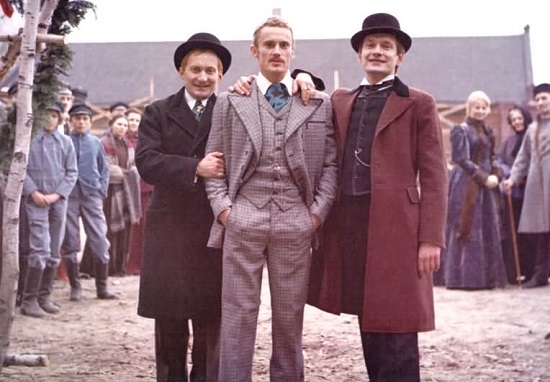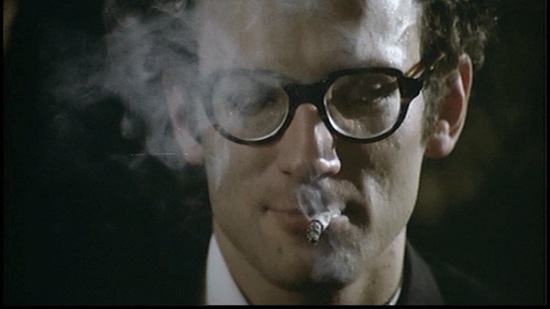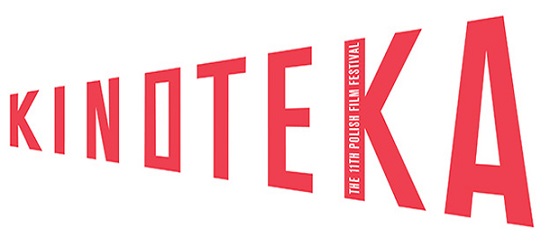March 2013 saw the 11th instalment of the annual Polish film festival, Kinoteka, taking place across a number of UK locations, from London to Belfast and Edinburgh. Events included screenings of both old and new films, exhibitions, talks and master-classes with luminaries from the world of Polish cinema. Highlights included screenings of The Promised Land (Andrzej Wajda, 1974) and Illumination (Krzysztof Zanussi, 1972), though Andy Votel’s audio-visual extravaganza Kleksploitation also warrants mentioning. Before recounting some impressions from these events, however, allow me the following proviso: there is an inherent difficulty in writing about festivals such as Kinoteka, not least because their remit tends to be fairly loose: to bring a bite-sized cross section of any given culture to the wider public in a manner that will hopefully justify public funding. That is to say, the red thread running through the events at Kinoteka is simply that all of the artists, directors and filmmakers whose work is on show are Polish. Accordingly, discerning any thematic coherence from the events is difficult. That isn’t to say that the individual works on show have no merit, only that – from a curatorial perspective – their framing is, perhaps, a tad general.
The opening night of the festival, held at the appropriately grand Barbican cinema, was marked by the screening of an unabridged version of The Promised Land, a film that gained its director Andrzej Wajda an Academy Award nomination for best foreign film in 1975. Despite this public recognition The Promised Land has, for the most part, been consigned to the rank of an unsung masterpiece, after a series of preposterous charges of anti-Semitism meant that it was never widely distributed in the US or Britain. The film, based on a novel by Wladyslaw Reymont, is set in the industrial boomtown of Lodz in the late 19th century. It tells the story of three friends – an aristocratic Pole, a German and a Jew – who venture to set up a factory during a period of unparalleled growth in a city that went from being little more than a fishing village to a major centre of industry in next to no time at all. The factory is built, but is burned down shortly after it opens and before it is insured thus leaving the protagonists much as they started: with nothing. There is something sinister about the entrepreneurial sentiment expressed in the line “I have nothing, you have nothing, together we have just enough”, which is repeated by the Jewish character, Moryc Welt (Wojciech Pszoniak), both before the factory is built and after it burns down. It conveys the pervasive can do attitude of pulling-yourself-up-by-the-bootstraps that characterised this period of gross industrialisation.

The central moral conflict of the film, then, can be summed up as follows: the cut-throat capitalism of the three protagonists is counter-poised with an old world of nobility, dignity and patriotism, represented by the family of the Polish character, Karol Borowiecki (Daniel Olbrychski), who live on an estate outside the city. In short, the conflict portrayed in The Promised Land is one between an old feudal order and the new world of capitalism, which is beyond national or cultural boundaries. In spite of Reymont’s evidently conservative sympathies for the old world represented by Borowiecki’s father, the sobering portrayal of the horrors of capitalism gives Wajda’s masterpiece undeniable contemporary resonance, not least with a view to Poland’s enthusiastic embrace of the free market economy post-1989. (There is something unnerving about the fact that the giant Poznanski factory, which was used as a set throughout the film, has since been turned into a massive shopping mall.) Wajda’s sensitive and differentiated portrayal of a society in turmoil beautifully evokes the drama of this chapter of Polish history, whilst pointing to wider socio-political themes that remain pressing to this day.
Wajda’s very concrete preoccupation with Poland’s turbulent history contrasts interestingly with Krzysztof Zanussi’s rather more metaphysical concerns from his 1972 film The Illumination. The film opens with a short account of Augustine’s famous definition of illumination as the enlightenment of the mind. The nature of this enlightenment, essentially, marks the central theme of the film. The Illumination, then, tells the story of a young man, Franciszek Retman (Stanislaw Latallo), who is concerned with finding “unequivocal” answers to fundamental questions of human existence. As a physics student, Retman – like Zanussi himself – seeks illumination in the facts and figures provided by the natural sciences. However, a tumultuous love affair, and the death of a friend during a mountain-climbing trip punctuate Retman’s scientific pursuits. In due course he starts a family with another woman, though the relationship seems fraught with compromise. His studies are interrupted by practical constraints and Retman winds up working an array of odd jobs, which include offering his body to scientific experimentation, and assisting at a psychiatric hospital.

The ethical questions posed to science, particularly regarding the seemingly irreconcilable division between base-level biological life and what might be called the human experience, span the entire film. Not because it is somehow anti-science, but, rather, because it is concerned with a metaphysics of knowledge. It is telling that, in addition to his scientific pursuits, Retman looks to religion for answers when he visits a convent in the countryside. His brief flirtation with suicide and the fact that he is diagnosed with heart disease, too, expresses something of the frailty of his search and of the fact that the answers which Retman seeks are, ultimately, not unequivocal. In terms of cinematography, The Illumination operates by a kind of montage technique, splicing together footage from educational films, stills and other materials in kaleidoscopic constellations and figures. This calls to mind Walter Benjamin’s quasi-imagistic conceptions of knowledge, indeed, illumination, as echoed in the title of his famous essay collection, cementing the philosophical undertones of the film. This became clear, not least, during the Q&A with Zanussi that followed the film during which the director spoke candidly about censorship and film funding in 1970’s Poland. This kind of screening is Kinoteka at its best: a worthy snippet from the wondrous catalogue of one of Poland’s great filmmakers.
A few words of criticism: the panel discussion following the screening of Wojciech Bruszewski’s films at the Tate so thoroughly avoided the issues raised by this difficult artist’s work that it is hard to imagine how the event could have gone any worse. The historically undifferentiated account of the entire period between 1945 and 1989 in Poland as a single Stalinist monolith is glaringly inaccurate and does no justice to the complex historical context in which Bruszewski worked. The recollections of one of the panellist’s visits to 1970’s Warsaw (which, on this account, sounded more like present-day Pyongyang) were, frankly, patronising. The shallow engagement with questions regarding the political dimension of Bruszewski’s work, too, missed the point entirely. This came as a disappointment after an hour of very interesting and rarely seen films.
Overall Kinoteka did exactly what it said on the box: to present a cross section of Polish film, in the broadest sense, to a wider public. No more, no less. As ever, the individual works on show were well chosen and proved to be thoroughly thought provoking. Were I to offer a suggestion to the organisers, it would be to devise more thematic correspondences between the items on the programme. Besides that, I am looking forward to getting my hands on the second volume of Second Run’s Polish Cinema Classics DVD collection, which features, The Promised Land, The Illumination and Escape from the Liberty Cinema.


